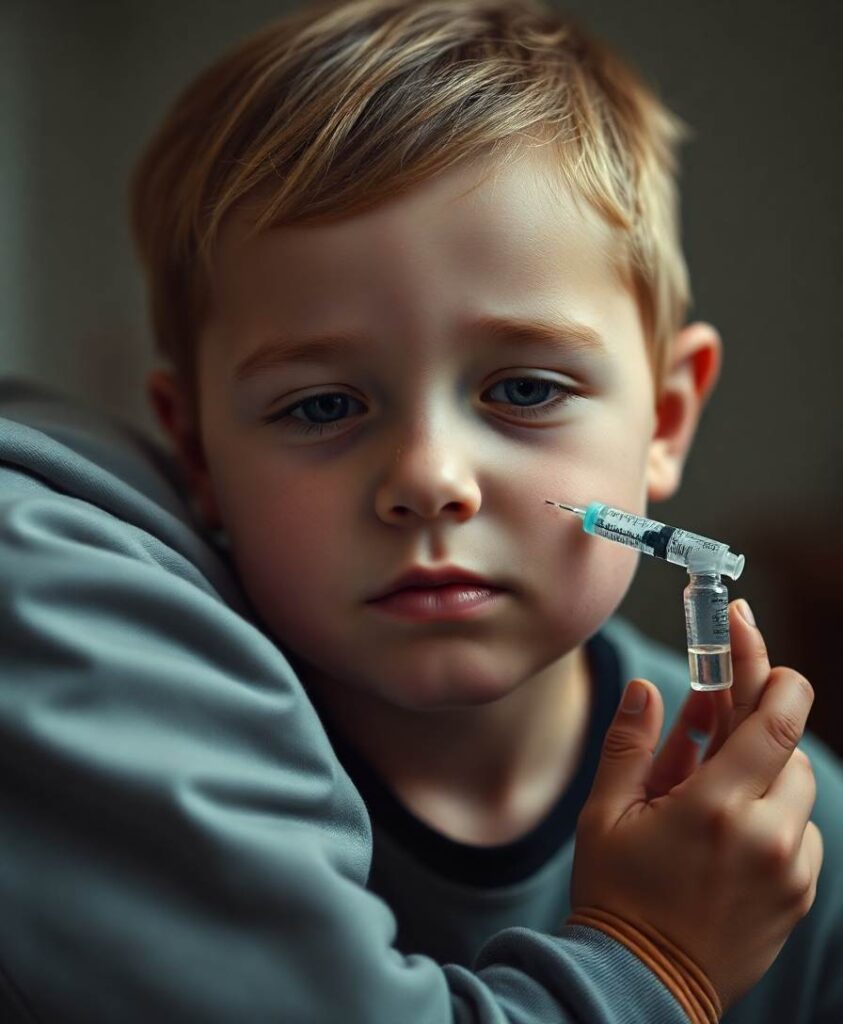When your child’s body reacts violently to something as simple as a peanut butter sandwich or a slice of strawberries, it can feel like an unpredictable storm inside their little system. You notice every sneeze, every rash, every gasp—your senses heightened, trying to catch the next sign of trouble. That visceral feeling of wanting to protect your child’s fragile health is something many parents know all too well. What if there was a new discovery that could help explain why some children develop these intense food allergies—and perhaps even guide better ways to support their immune systems?
Recent research shines a spotlight on a tiny but mighty player in the immune system called **Thetis cells**. These immune cells are like guardians stationed in the gut, silently working to keep inflammation at bay when food enters the body. First identified in 2022, Thetis cells are now emerging as crucial in understanding how the immune system learns to tolerate food, rather than react with hypersensitivity.
Living with a child who has food allergies can sometimes feel like walking a tightrope. Every meal, every snack becomes a calculated risk, shadowed by the fear of an allergic reaction. What makes this new discovery so compelling is that it offers a glimpse into the body’s internal balancing act—how some cells seem to tell the immune system, “Hey, this food is safe,” rather than “Attack now!”
The core of this breakthrough lies in the role Thetis cells play in suppressing inflammatory responses to food. In essence, they act as peacekeepers, preventing the immune system from overreacting to harmless substances. When these cells aren’t functioning properly or are absent, the immune system may be more likely to launch an alarm, resulting in food allergies. Understanding this process opens up potential pathways for therapies that could boost or mimic the work of Thetis cells, helping children develop better tolerance to foods they currently react to.
For parents navigating the complex world of childhood food allergies, this research offers a new perspective. It’s no longer just about avoiding triggers or managing reactions—there’s a deeper, biological story unfolding about how the immune system learns what to tolerate. This knowledge can foster hope for future treatments that gently retrain the immune response, reducing the severity or even the occurrence of food allergies.

The journey toward better allergy management often begins with awareness of the early signs. Children might show subtle signs of immune imbalance—irritability, digestive discomfort, or skin sensitivities—that could hint at underlying issues in how their immune system is learning to distinguish food from threat. Recognizing these signals and understanding the immune processes involved can help caregivers advocate for emerging therapies or participate in clinical trials aimed at harnessing the power of cells like Thetis cells.
As science unravels the mysterious roles of immune cells like Thetis cells, the hope is that someday, managing childhood food allergies will be less about constant vigilance and more about nurturing a resilient, well-balanced immune system. It’s a reminder that within the tiny structures of our bodies lie powerful keys to health—keys that can unlock a future where food allergies no longer cast such long shadows over childhood.
Living with food allergies can feel isolating, but breakthroughs like the discovery of Thetis cells remind us that science is steadily building a deeper understanding of our immune defenses. For parents, caregivers, and children alike, this research signals a future where tolerance and safety go hand in hand, guided by a precise understanding of our body’s inner workings.
Learn More: Key player in childhood food allergies identified: Thetis cells
Abstract: Thetis cells, a class of immune cells first described in 2022, play an essential and previously unknown role in suppressing inflammatory responses to food, a new study finds.
Link: Read Full Article (External Site)



